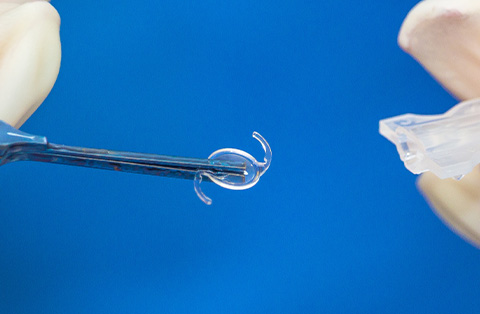Considering a tummy tuck to achieve a flatter, more toned abdomen? It's a popular procedure for those looking to remove excess skin and fat, but like any surgery, it's important to understand the long-term outlook. How might a tummy tuck impact your overall health, and what are the potential risks?
In this article, we’ll explore life expectancy after tummy tuck surgery, focusing on key factors like recovery, long-term health effects, and risk factors that could influence your results. Whether you're curious about safety, recovery, or what to expect in the future, this guide will give you the facts you need.
What are the Risk Factors Involving Tummy Tuck Surgery?
While tummy tuck surgery can provide transformative results, it’s essential to be aware of the potential risks involved. Every surgical procedure carries certain risks, and understanding them allows you to make informed decisions.
From complications during the procedure to factors that can impact your recovery, knowing the potential pitfalls can help ensure a safer and more successful outcome.
Let’s examine the key risk factors that accompany tummy tuck surgery and how you can minimize them.
Potential Complications of the Procedure
Tummy tuck surgery involves the removal of excess skin and fat, as well as tightening abdominal muscles. Common complications may include:
Infection: Post-surgical infections can occur if proper wound care is not followed.
Bleeding: Excessive bleeding, while rare, is a risk with any surgery.
Blood clots: Deep vein thrombosis (DVT) or pulmonary embolism can develop, particularly after lengthy surgeries.
Poor wound healing: Some patients may experience delayed or problematic healing, leading to noticeable scarring.
Numbness or sensation changes: Damage to nerves during surgery can lead to temporary or permanent numbness in the abdominal area.
Factors Affecting the Success of Surgery
Several factors can influence the outcome of your tummy tuck, including:
Age: Older patients may face more significant risks due to decreased skin elasticity and slower recovery times.
Smoking: Smokers have a higher risk of poor wound healing, infection, and complications with anesthesia.
Weight fluctuations: Significant changes in weight before or after surgery can affect the long-term results.
Pre-existing conditions: Conditions such as diabetes or cardiovascular issues can increase surgical risks and delay recovery.
How to Minimize Risks During Recovery
A successful tummy tuck recovery starts with proper post-operative care. Here’s how to minimize risks:
Follow your surgeon's instructions: Proper wound care and activity restrictions are crucial to preventing infection and complications.
Stay active: Light movement, like walking, can help reduce the risk of blood clots.
Avoid smoking: If you smoke, quitting well before surgery and throughout recovery significantly lowers your risk of complications.
Maintain a stable weight: This helps ensure the longevity of your results and minimizes strain on healing tissues.
By being aware of these risk factors and taking steps to mitigate them, you can achieve a safer, more effective tummy tuck experience.
What is the Life Expectancy After a Tummy Tuck?
A tummy tuck is primarily a cosmetic procedure aimed at improving the appearance of the abdomen by removing excess skin and fat. But how does this surgery impact your long-term health and life expectancy?
While a tummy tuck doesn’t directly affect lifespan, the procedure can have lasting effects on your physical and emotional well-being. Understanding the long-term results and how to maintain them is key to ensuring the procedure enhances your quality of life for years to come.
Long-Term Results of Your Tummy Tuck
The results of a tummy tuck can be long-lasting if properly maintained. Patients generally experience a flatter, more toned abdomen after surgery, with noticeable improvements in body shape.
Related Article: What to Expect From a Tummy Tuck 20 Years Later?
The long-term success of the procedure depends on factors like:
Stable weight: Maintaining a consistent weight after surgery is crucial. Significant weight fluctuations can reverse the effects of the procedure.
Skin elasticity: Over time, natural aging may affect the tightness of your skin, though the improvements from the surgery often remain for many years.
In most cases, patients enjoy the benefits of a tummy tuck for decades if they maintain a healthy lifestyle and take care of their bodies.
Maintaining Results with a Healthy Lifestyle
While a tummy tuck can help achieve immediate aesthetic improvements, long-term success relies heavily on lifestyle choices. Key habits to focus on include:
Regular exercise: Incorporating both cardio and strength training helps maintain muscle tone and prevents fat buildup.
Balanced diet: Eating a nutritious diet supports a stable weight and overall health. Avoiding weight gain is crucial for preserving the results of your surgery.
Avoid smoking: Smoking can affect healing and overall skin quality, which may reduce the longevity of your results.
By adopting these habits, you can significantly prolong the effects of your tummy tuck and enjoy a healthier life overall.
Enhancing Quality of Life Post-Surgery
A tummy tuck doesn’t just improve physical appearance—it can also enhance your quality of life in other ways. Many patients report:
Increased confidence: A flatter, more toned abdomen often leads to greater self-esteem and comfort in social and professional settings.
Improved posture: Strengthening the abdominal muscles can alleviate back pain and improve posture, further enhancing daily well-being.
Better physical activity: With excess skin and fat removed, it becomes easier to engage in physical activities, which supports overall health and longevity.
Ultimately, while a tummy tuck won’t directly impact life expectancy, the improvements in physical appearance, comfort, and confidence can lead to a healthier, more fulfilling life.






